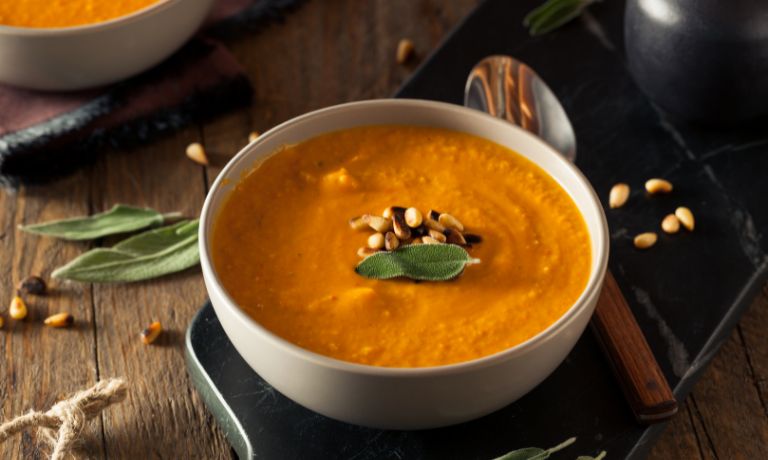Carrots are a staple in many delicious soups. They bring a sweet taste and vibrant orange color to warm up any day perfectly.
However, not everyone enjoys that classic carrot flavor or always cooks with them.
If you’re looking for an alternative vegetable for your next soup recipe, look no further!
In this blog post, we will be exploring different vegetables that can substitute for carrots in soup and how they alter the overall flavor of the dish.
Next time you make homemade soup or chowder, forget about those traditional carrots; instead, try something new by substituting another veggie that will give your meal a unique depth of flavor!
What Are Carrots?
Carrots are an edible root vegetable that belongs to the Umbelliferae family.
They are a popular and widely cultivated crop grown worldwide in temperate climates.
Carrots taste sweet when eaten raw but can be cooked, boiled, puréed or juiced for added flavor.
Carrots come in various colors such as yellow, orange, white and purple.
They provide abundant dietary fiber, carotenoids, vitamin A, and antioxidants, making them an excellent nutritional resource.
You can eat carrots raw as part of salads or side dishes; steamed or stir-fried for a quick and easy meal; blended into soups; roasted in the oven to create delicious caramelized carrots; or juice for a tasty, nutrient-rich juice.
Carrots are also used in cakes and other baked goods for flavor and color.
Carrots can be stored in the refrigerator for up to a week or frozen for longer storage.
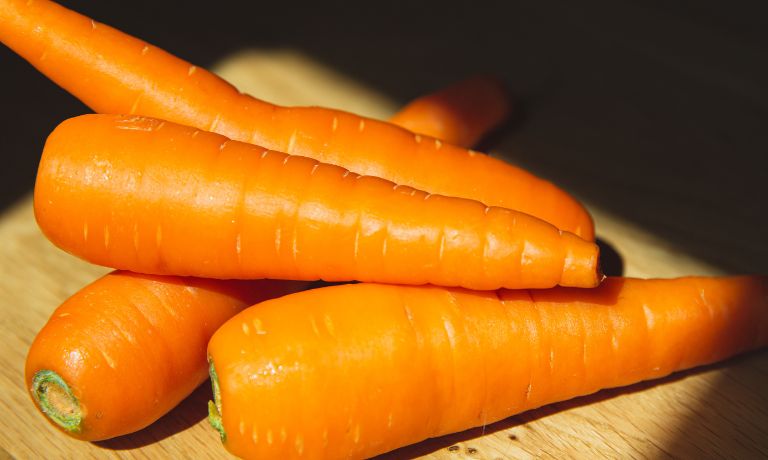
Substitutes For Carrots In Soup
Carrots are a popular ingredient in soups, adding sweetness and flavor to many dishes.
But if you don’t have carrots or prefer not to use them for dietary reasons, several ingredients can be used as substitutes.
Beet
Beet is a root vegetable that is grown mainly in temperate climates.
It has an earthy, sweet flavor when cooked and can be used in various dishes, from salads to soups.
Beets are high in antioxidants, vitamins A and C, phosphorus, iron and other minerals.
They also contain dietary fiber, which helps digestion and makes them a great addition to any healthy diet.
Beets are commonly boiled or steamed and can be mashed, pickled, sliced and diced.
They have a strong flavor that pairs well with sweet flavors like onion or honey.
Beets also work well in soups and stews, adding color and flavor to the dish.
Beets make a great substitute for carrots in soup because they are sweet and earthy, like carrots.
To get the most out of your beet soup, use fresh beets instead of canned or frozen ones, as these will have more nutrients and flavor.

Celery
Celery is a vegetable that belongs to the Apiaceae or Umbelliferae family.
It is characterized by its crunchy, fibrous texture and mild flavor.
Celery has a light, herbal flavor often used to complement richer flavors like butter or cream.
Due to its mild flavor, celery can easily blend with other ingredients while adding texture and depth of flavor.
Additionally, celery is relatively low in calories and fiber, making it a nutritious addition to any meal.
It can also be used as an alternative to carrots in soups, offering a slightly different flavor profile than traditional carrot-based soup recipes.
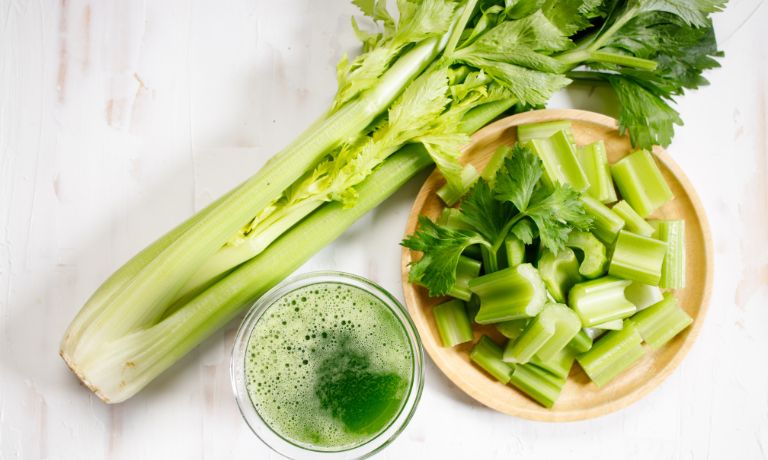
Daikon
Daikon is a type of radish, typically yellow or white in color. It has a mild, slightly sweet flavor and crunchy texture.
Daikon is popularly used in Japanese cuisine as an ingredient for pickling, grating into salads, stir-frying, and soups.
It can also be roasted or boiled and served as a side dish.
Daikon is a great substitute for carrots in soups because it adds a mild, sweet flavor and crunchy texture.
It can also be grated or cut into thin strips to add visual appeal to soups.
Additionally, daikon has several health benefits, such as being high in dietary fiber, potassium, and Vitamin C.
Due to its high water content, daikon helps to keep the soup light and flavorful.
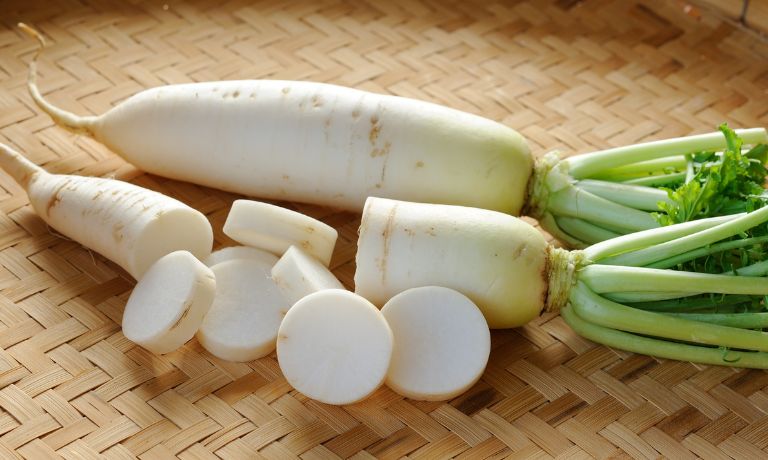
Jicama
Jicama is a starchy root vegetable commonly found in Latin American cuisine.
It has a refreshing taste with a hint of sweetness and can be consumed naturally or prepared by cooking.
As a raw delicacy, it is commonly sliced into sticks or cubes and enjoyed with zesty sauces as a snack.
When utilized in cooking, jicama can undergo various techniques such as boiling, roasting, steaming, stir-frying, and others.
Jicama is low-calorie, high in dietary fiber, and rich in vitamins and minerals, including vitamin C and potassium.
Jicama can be used as a substitute for carrots in soup, adding a slightly different flavor.
It also retains its crunch when cooked, giving the soup an interesting texture.
It can be blended into the liquid or cooked separately and added at the end.
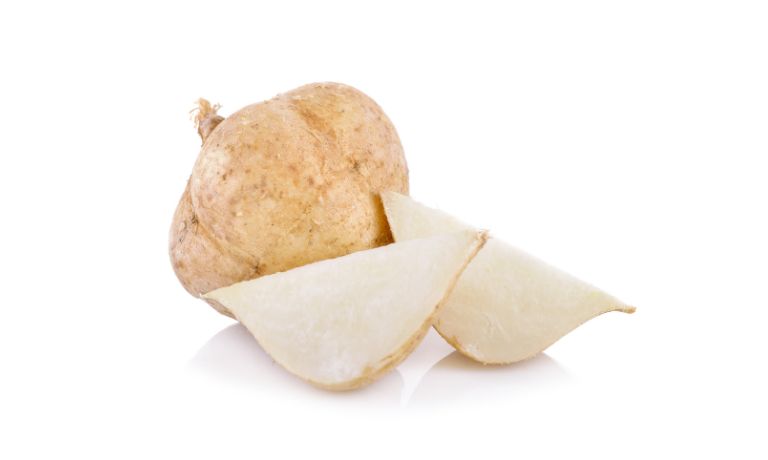
Parsnip
Parsnip is a root vegetable related to carrots with a slightly sweet flavor.
It can be cooked in many ways, such as steaming, boiling, baking, or frying.
Parsnips can also be used as an alternative to carrots in soups and stews since their texture and flavor are similar.
The sweetness of parsnips is enhanced when cooked and can add a nice depth of flavor to soups.
Parsnips also have more nutritional value than other root vegetables.
In addition, many people find that parsnips offer a unique flavor that cannot be replicated with other ingredients.
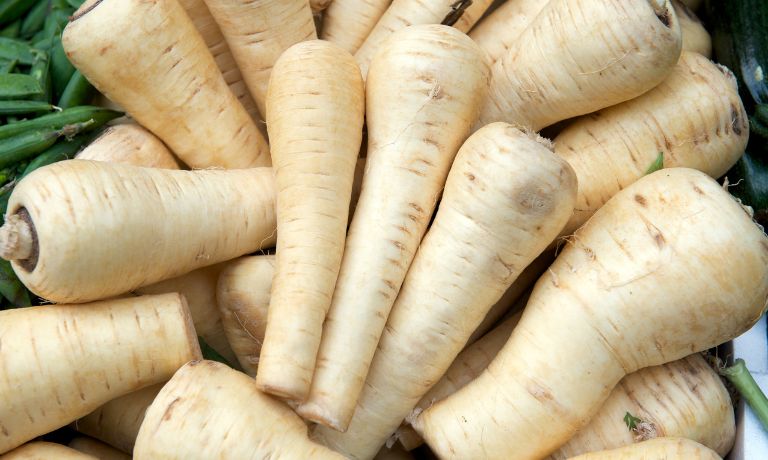
Squash
Squash is a vegetable that comes in many shapes, sizes and flavors.
It is most commonly used in cooking to add flavor, color, and texture to dishes.
Squash can be cooked in various ways, such as steamed, roasted, or boiled, and can also be used raw as a garnish.
The most popular squash varieties include butternut, acorn, spaghetti, and zucchini.
Squash is also a good source of fiber, vitamins, and minerals that help to provide essential nutrients to the diet.
Squash is often used as a substitute for carrots in soup due to its thick texture and smooth flavor.
It can be blended or pureed with other ingredients to create a creamy broth with the same earthy sweetness as carrots.
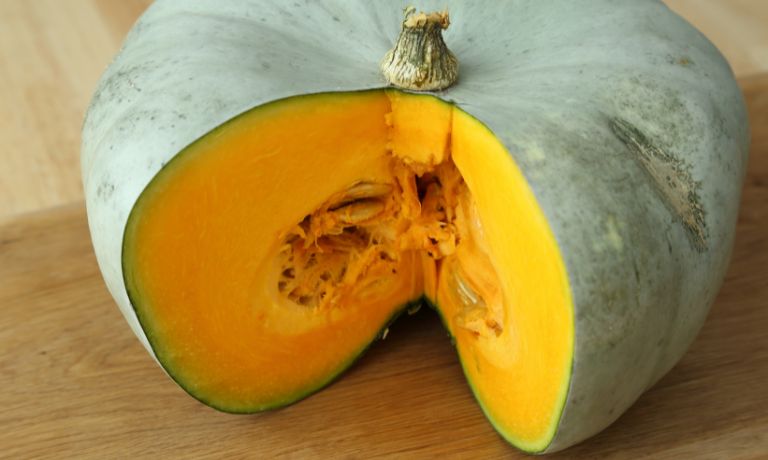
Water Chestnut
Water chestnuts, often called Chinese water chestnuts, are aquatic vegetables that grow in marshy areas throughout much of Asia and parts of the United States.
It has a crunchy texture and sweet flavor, making it a popular ingredient in many dishes, from stir-fries to salads and soups.
Water Chestnut has many nutritional benefits as it is a good source of carbohydrates, dietary fiber, and protein.
It also contains antioxidants, minerals, and vitamins B1 and C.
Water Chestnuts can be used in many different ways. You can eat them raw or boiled, roasted, fried or steamed.
They are commonly used in Chinese dishes such as chow mein and fried rice.
They can also be added to salads, soups and stews as a crunchy textural contrast.
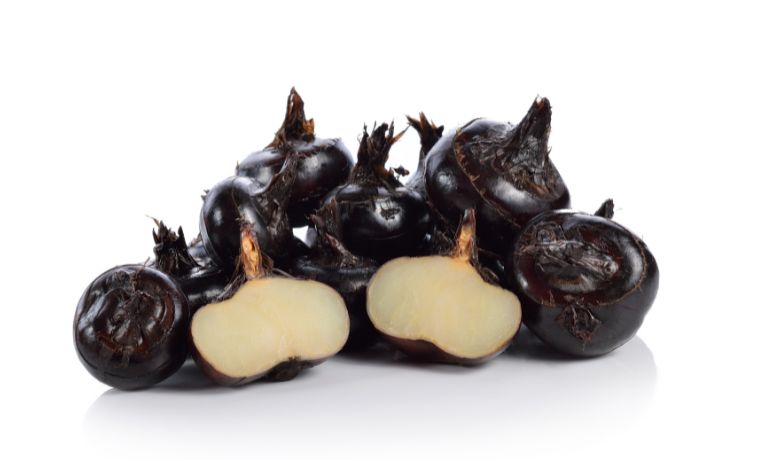
Zucchini
Zucchini is a summer squash found in many markets and grocery stores. It has a mild, slightly sweet flavor and firm texture.
Zucchini can be used in many ways, from grilling to baking, sautéing to roasting.
It can even be enjoyed raw as part of salads or blended into smoothies.
Zucchini is a great substitute for carrots in soup.
It can be cut into cubes and added to soups for a crunchy bite or blended with other ingredients to make a creamy base.
Zucchini will also add sweetness to the soup without overpowering the other flavors, making it a great complement to other ingredients.
Its high water content also helps make the soup more filling and nutritious.
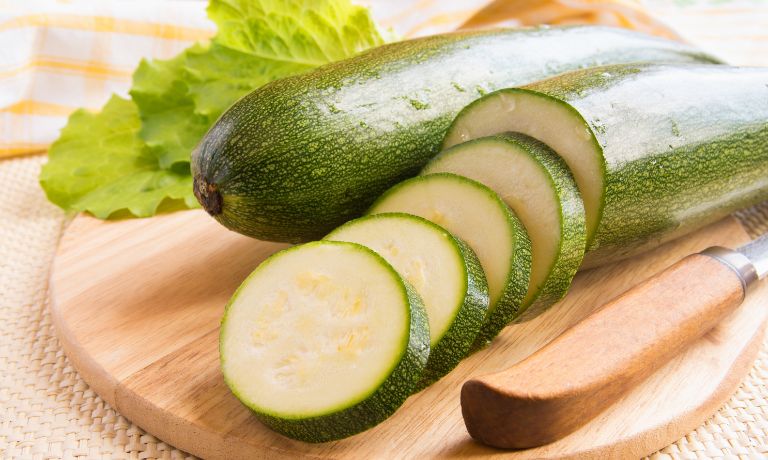
FAQs
What Flavor Does Carrot Have?
Carrot has a subtly sweet, earthy flavor.
It is not particularly strong or pungent but has a unique taste that differentiates it from other vegetables.
Can Sweet Potatoes Be Substituted For Carrots In Soup?
Yes, sweet potatoes can be substituted for carrots in soup.
Sweet potatoes have a slightly different flavor than carrots and will change the flavor of the soup, but they can still make a delicious addition to your recipe.
What Other Vegetables Are Similar To Carrots?
Other vegetables like carrots include turnips, parsnips, beets, rutabagas, and sweet potatoes.
These vegetables have an orange-red color and a sweet flavor when cooked.
Conclusion
Carrots are a popular and versatile vegetable used in many dishes.
However, several other vegetables can make a great substitute for carrots in soups.
Daikon, jicama, parsnip, squash, zucchini, and water chestnuts all provide their unique flavor and texture while still offering the same sweetness level as carrots.
Each of these vegetables has several health benefits, making them an excellent alternative for anyone looking to add more nutritious ingredients to their soup.
Ultimately, with a little creativity and experimentation, you can create delicious soups that are both healthy and tasty!


